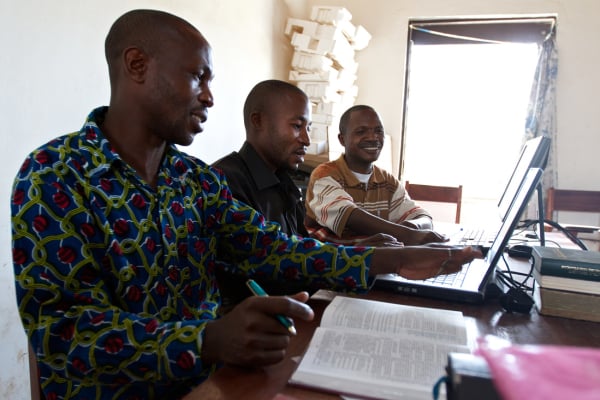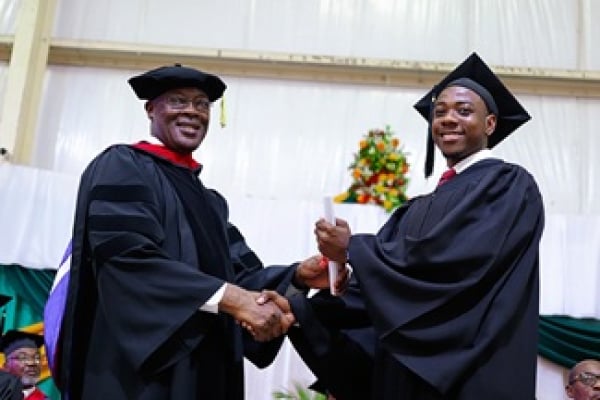Taking Faith and Work Global
This interview between Amy L. Sherman of the Sagamore Institute and John Spadafora of Crossworld originally appeared at madetoflourish.org.
Amy Sherman (ALS): What is the mission of Crossworld and how does that connect to the faith and work movement?
John Spadafora (JS): We desire to mobilize all of God’s people in all of their professions to be disciple-makers through their jobs, which includes traditional workers as well as marketplace workers. And we’re encouraging believers to do that in the most unreached marketplaces, where 85 percent of the people are likely to have never met a Jesus-follower.
We share with the faith and work movement the desire to dismantle the sacred/secular divide. That divide is perhaps most evident in missions which, for a long time, has been the domain of professional religious workers. But their numbers alone are insufficient for meeting the Great Commission task. If spiritually mature believers moved their professions overseas, more of the least-reached would have an opportunity to see God’s love in action.
ALS: What kind of work does Crossworld do?
JS: One thing we’re doing is connecting with the international church movement. This is a growing movement of English-speaking congregations filled with Jesus-followers who are legitimately in these least-reached countries doing marketplace jobs, making a valuable contribution. We want to help the leaders of these international churches to equip their people with vision and skills for living out their faith in their workplaces. For the most part, the integration of faith and work has not been part of these pastors’ theological training. Currently we’re partnering with six of these international churches in Southeast Asia to come alongside such to coach and train them in that integration.
ALS: Why do you think the domestic faith and work movement has yet to wake up to this global dimension?
JS: First it’s the fact that churches that truly want to make a difference globally in the least-reached areas of the world, and that dedicated resources to that vision, are rare. And then it’s even rarer for them to include in their plans the opportunity for marketplace people to use their professions as arenas of discipleship in overseas mission. Why? Because that sacred/secular paradigm is so deeply embedded.
We must address the fact that two to three billion people haven’t heard of Jesus through a missions strategy that uses just a select few. We need the whole body of Christ recognizing that the purpose of God for the world is a global purpose. I believe we need more pastors who understand that God’s global purpose begins in Genesis 1 with the cultural mandate. And I would love to see in the faith-and-work movement focus more on the aspect of “filling the earth.”
ALS: Is it fair to say that when traditional sending agencies confront the problem of closed countries their strategy is “tent-making”?
JS: Yes, historically that has happened frequently. But at times this approach continues the sacred/secular dichotomy because then the tent-making — doing the business or having the job in the marketplace — is sometimes thought to be an excuse for being in the country so “I can do ministry.” There’s not the recognition that the business or the job itself is the ministry. At Crossworld, our training introduces them to a deeper theology of work. When they catch that they can end up having opportunities to reach whole echelons of society.
ALS: Who do you mean?
JS: Well, it depends on the kind of country we’re talking about. Sometimes Christian business entrepreneurs have opportunity to influence culture at a higher level, touching middle-class or professional people more than the poor. But there are also business people who start companies and create jobs that have huge influence on the poor. I think of a business entrepreneur in East Asia who has created about 600 jobs, including hiring some disabled people. So the city leaders there who aren’t Christian have honored him publicly for the value he brought to their community.
ALS: As pastors seek to better equip their congregants to connect Sunday to Monday, what do you want them to be saying about global missions?
JS: First, I’d love to see them equipping their people in ways that break the sacred/secular dichotomy. Second, pastors need to help all people recognize they can be missional through their work and challenge them to imagine what that can look like. Third, I’d hope that they’d preach that the purpose of God for their congregants is not simply for them to find Jesus as their “all and all” or only to “have a personal relationship with God.” God has a bigger kingdom purpose that encompasses the whole world. It starts in Genesis with his charge to fill the world with his image and ends in Revelation with him gathering worshippers from every tribe and nation. Pastors need to teach that global purpose and to cast vision that we all have a role to play.
The faith and work movement is basically saying, “What would America look like if people got up on Monday morning and said, ‘God, I’m going to my ministry at my job, where you’ve called me to work with creativity, excellence, and integrity to display you to others for their good and to make disciples’”? We applaud that! But what if we also said, “What would the world look like if Christians flooded the marketplaces around the globe with skills and trades and professions God has wired us for, and that we’re excellent at, and we brought this whole mentality of living our faith out in those marketplaces?” To me, the potential is enormous.
.png)

 By Amy L. Sherman
By Amy L. Sherman











